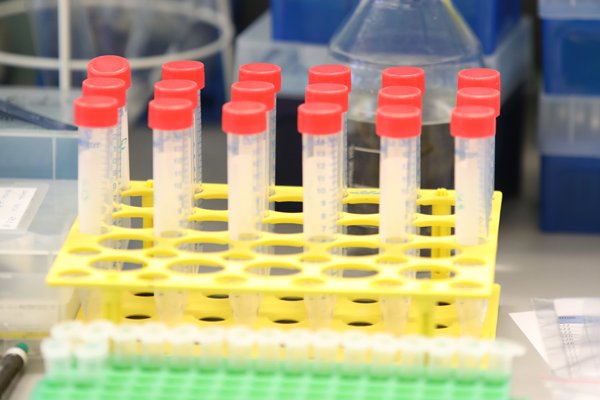Dr. Günter Bernhardt
![[Translate to Englisch:] Copyright: Zimmer, Simone/Institut für Immunologie/MHH [Translate to Englisch:] Porträtfoto](/fileadmin/_processed_/1/8/csm_Guenter_300_b15dbaae8d.jpg)
Institute of Immunology, OE 5240
I11-02-1120
Phone: +49 511 532 9729
E-Mail: Bernhardt.Guenter@mh-hannover.de
Research Focus
of the working group
Until mid ‘20th century, an infection with poliovirus represented a constant threat. Poliovirus is the etiological agent causing poliomyelitis, an up to now incurable disease affecting the motor neuronal system. Productive infection of a host necessitates the presence of a receptor on the surface of susceptible cells: poliovirus receptor, nowadays known as CD155, belongs to the family of immunoglobulin-like glycoproteins. Whereas the role of CD155 in polioviral pathogenesis was subject to intense research, the physiological functions of CD155 remained obscure for quite a while. In our group, we focused on the elucidation of CD155 functions in immunology for which purpose we had established a variety of tools such as monoclonal antibodies recognizing CD155 as well as CD155 deficient mice. Apart from poliovirus, several ligands binding to CD155 in trans were identified: vitronectin, nectin-3, CD96 (TACTILE), CD226 (DNAM-1), and TIGIT/WUCAM. The latter three are of special interest for us. In the past we could demonstrate that the CD155/ligand-system contributes to several immunologically relevant processes. Among these are: generation and function of CD4 follicular T cells, especially in the mucosal immune system; generation, selection and retention of CD8 T cells in thymus; differentiation of iNKT cells in thymus; disease progression during GvHD and IBD. These findings motivated us to investigate in general the mechanisms underlying the differentiation and function of iNKT cells as well as follicular T cells. Please find a more detailed description in the folder “Projects”. Moreover, in the context of several co-operations we participate in the elucidation of role of CD155 ligands in immunology. Among these is the role of the CD226 in NK-cell differentiation/function (cooperation with B. Chambers, Karolinska Institutet, Stockholm, Sweden) and the role of CD96 in immune surveillance of tumors (cooperation with M. Smyth, QIMR Berghofer MRI, Herston, QLD, Australia).


